Category Archive for Middle East Travel
I floated in the Dead Sea! Mud masks, Masada fortress & modern Mamilla hotel Jerusalem.

What’s your “happy place”? For me, it’s a combination of gentle sun, friends, travel, exploring cultures, the ocean, and my Scottish Fold cat. I got all of the above (minus the kitty, and with a salt lake instead) on one of my most memorable days in Israel.
Read on for my floaty, muddy adventure in the Dead Sea… (And apologies for the lack of posts over Memorial Day weekend – I’ve been in San Francisco with my friends. Tons of new material coming up; you can see previews of Bianca Del Rio at Trannyshack, oddities at Loved to Death and more on my @lacarmina Instagram.)
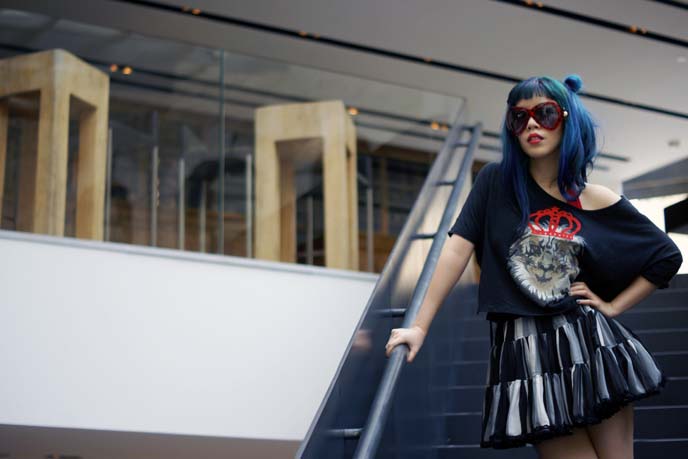
My film team and I woke up early at the Mamilla Hotel, a 5-star modern hotel on King Solomon Street. It’s the work of Israeli-born architect Moshe Safdie (who did the Vancouver Downtown Library) and designer Piero Lissoni.
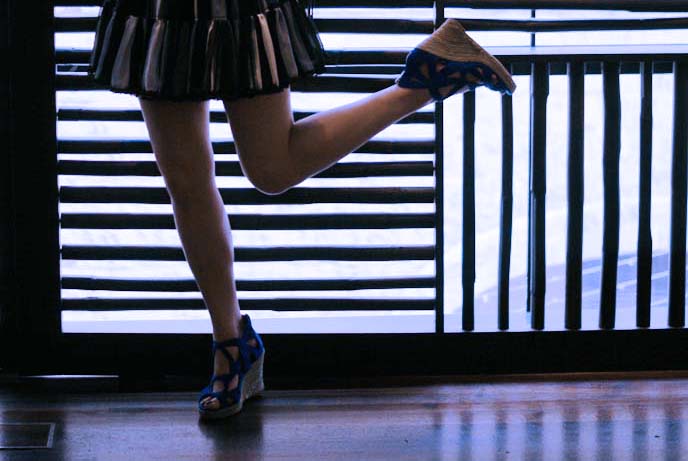
Mamilla is a perfect blend of new and old: witness Jerusalem stone walls next to a sculpted metal staircase. I wish we had time to experience their Akasha Wellbeing Center, celebrated for its organic bar and holistic classes.

I personally love stark, modern hotels. They tend to be ultra-clean with inspiring design, and have fast and free Wi-Fi. (Ideal for germophobic, design-freak, plugged-in millennial travelers like me.)
Photography by Eric Bergemann, Melissa Rundle and La Carmina.
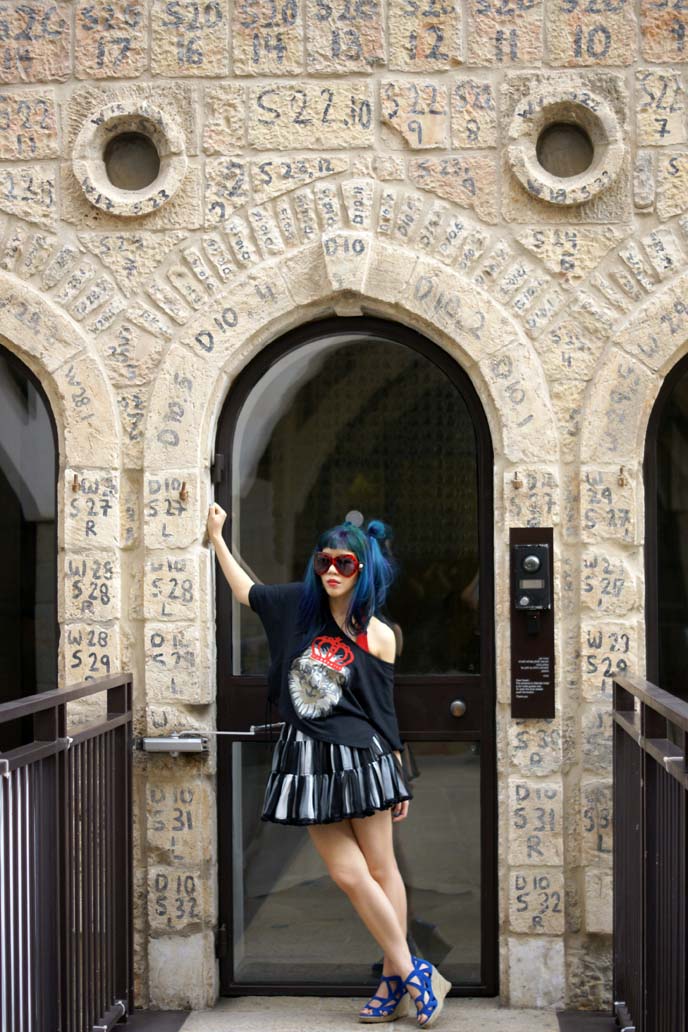
The Mamilla hotel’s facade was built from historic Jerusalem stone (similar to sandstone). Each one was numbered, to mark its proper place in the arch.
Today I’m wearing a lion t-shirt and blue sandals from Izzue Hong Kong, a black and white skirt from Algonquins Tokyo, and sunglasses by Marc Jacobs Dot.
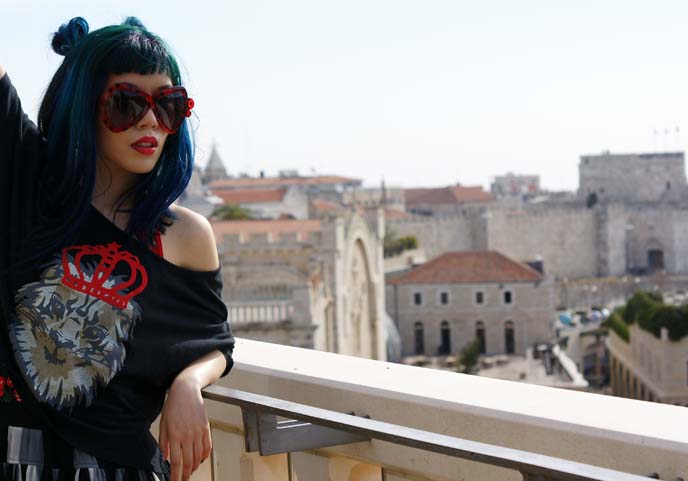
The rooftop gave us a magnificent view of Jerusalem’s Old City walls, the Tower of David and Jaffa Gate.
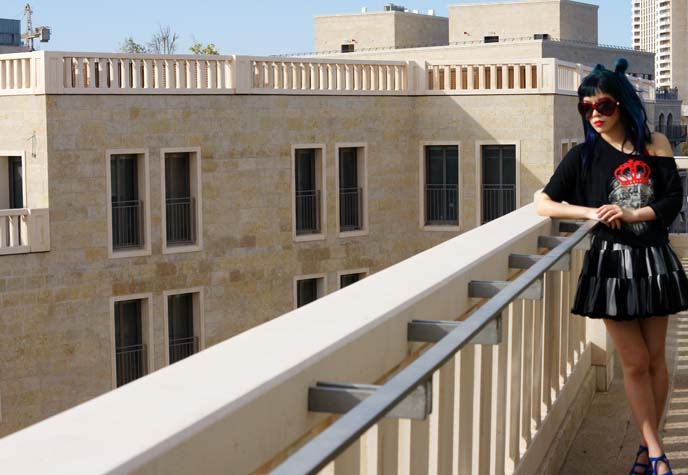
Perfect for a panorama shot. (My two filmmakers travel with me, and shoot the videos and photos. So far, we’ve been sent to the Maldives, Abu Dhabi, Mazatlan, Maui, Dubai, Portland, around Eastern Europe, and more!)
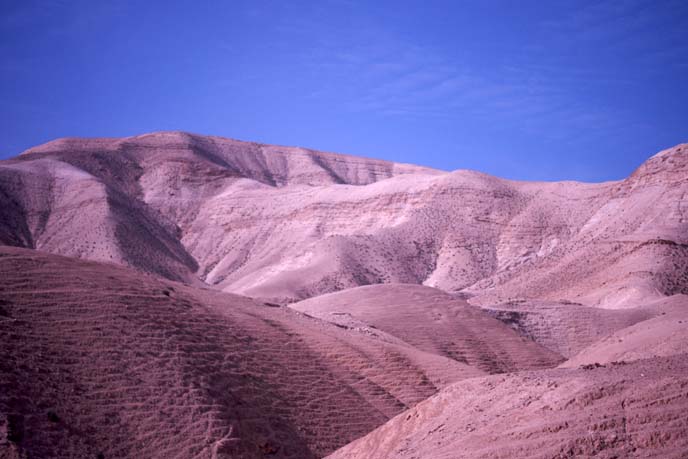
Time to hit the road. Our trusty driver and Israel guide, Uri Golani, took us for an hour and a half ride to Masada. Along the way, the sand scenery was straight out of Frank Herbert’s Dune (a must-read sci fi novel).
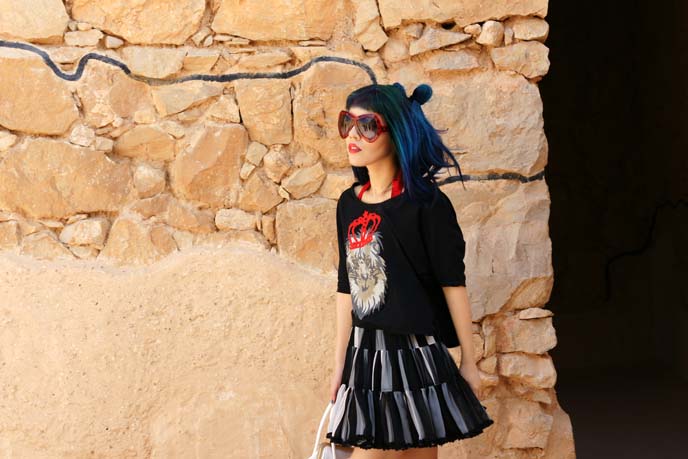
We took a short cable car ride up to Masada, the isolated mountain fortress built by Herod the Great around 37-31 BC. This is the site of the famous siege, where Jewish rebels fought back the attacking Romans after Jerusalem fell. Finally overtaken, the 960 Masada Jews supposedly committed mass suicide.
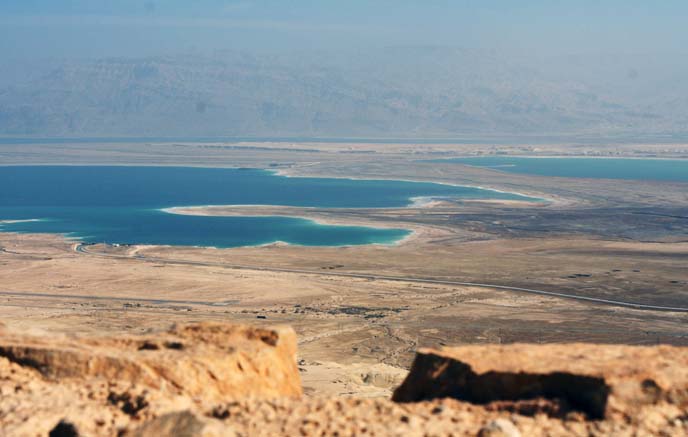
The rock plateau overlooks the Dead Sea, which we’ll visit after. Up the cliffs, ingenious water cisterns divert water from nearby wadis (ravines), which allowed the rebels to store as much as 10 million gallons of water.
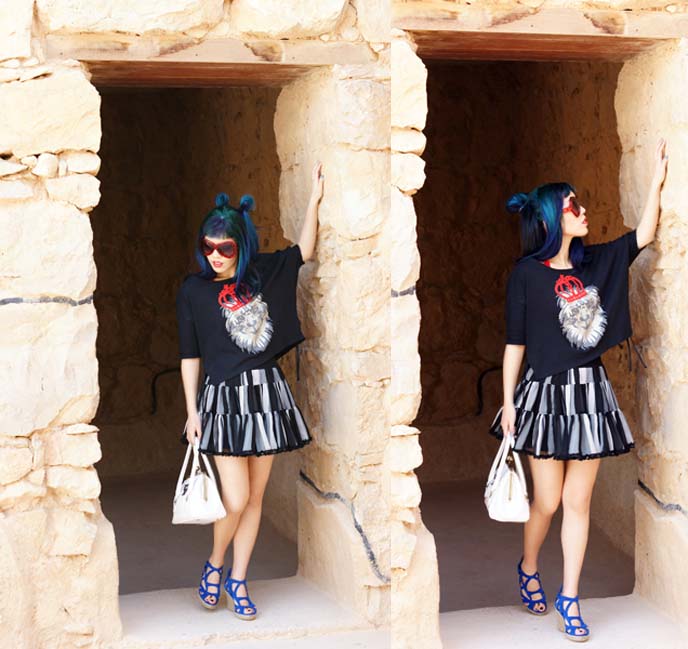
See this black line? It shows the height of the walls before they were reconstructed, since much of Masada was in ruins when it was re-discovered in 1828.
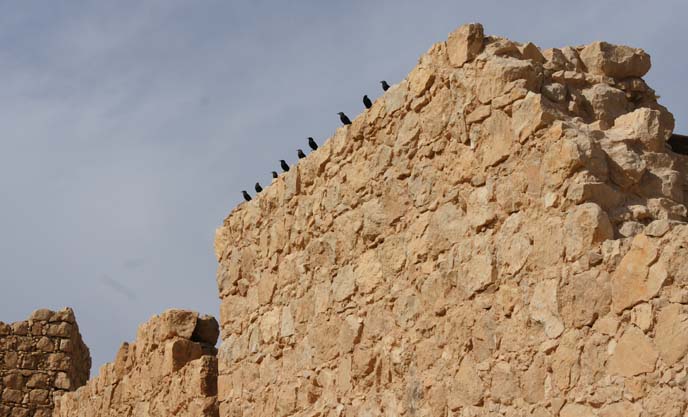
We ducked into the bath houses, which still had remnants of mosaics and painted wall plasters.
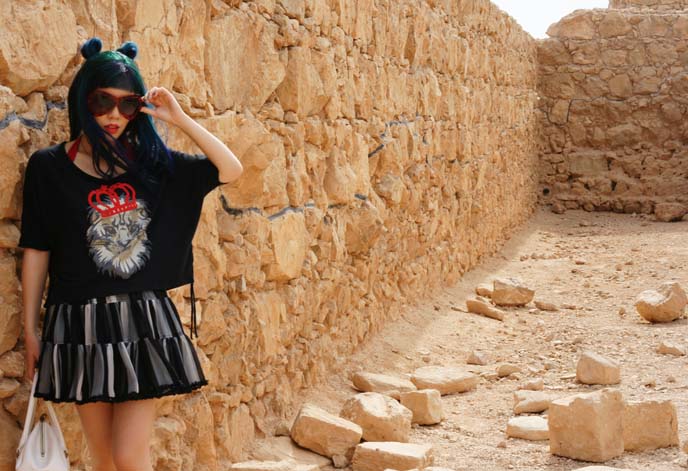
Imagining the homes, synagogue and store rooms that stood here ages ago.
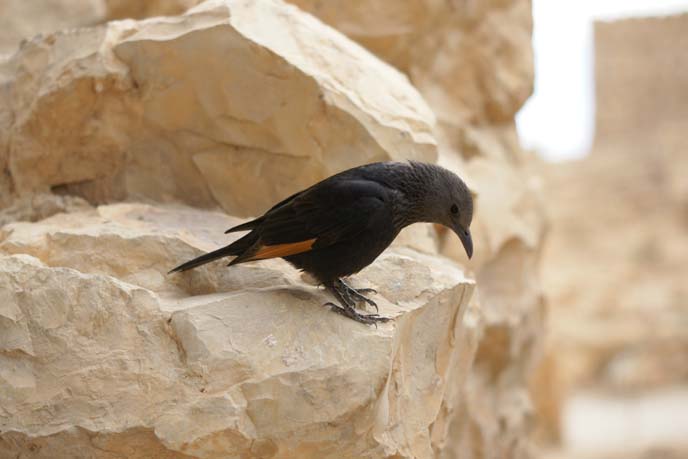
We saw a number of these noisy birds. I found out they are Tristram’s Starling, a bird native to this region. The males have orange marks on their wings.
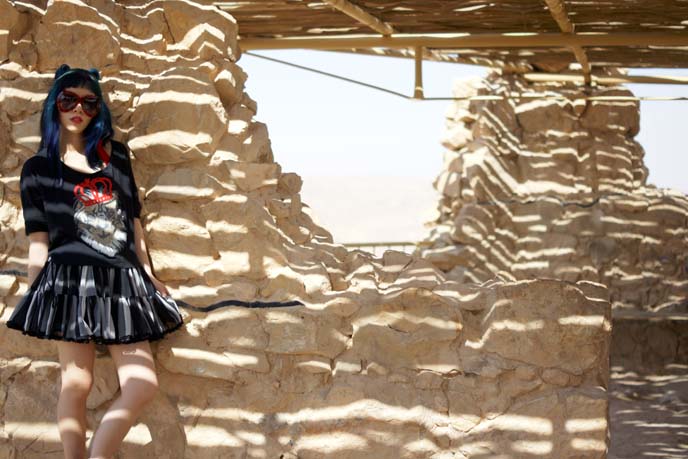
I remember reading about Masada years ago, but history lessons often don’t sink in until you’re actually on the ground where they took place. I think it’s important to see both the old and new sides of a destination, to better understand it.
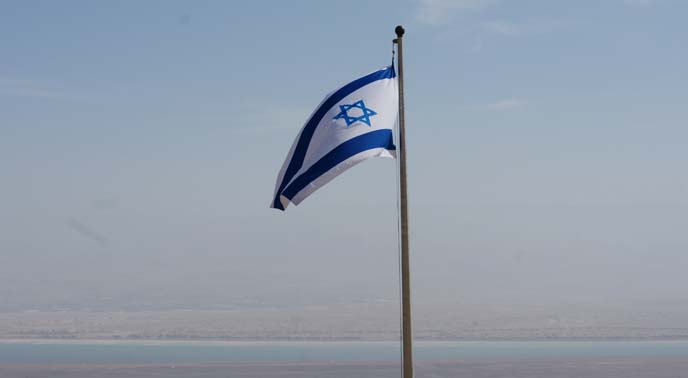
Alas, the wind is beckoning us to the water. We took a short drive to the Dead Sea, one of the world’s saltiest lakes. No living creatures can thrive in the waters, hence the very Gothic name.
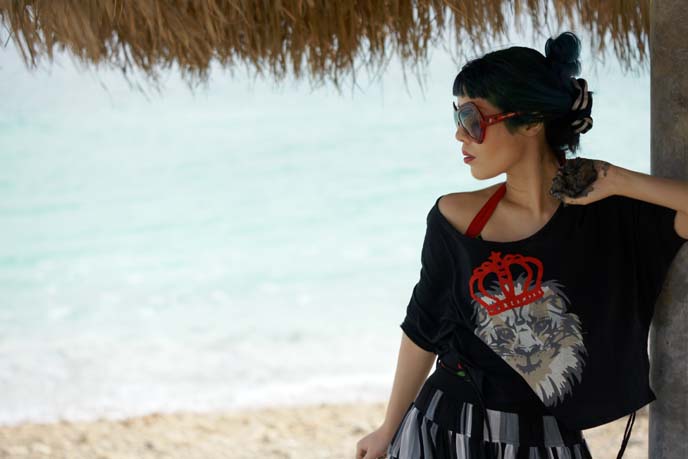
Bathers can grab handfuls of mud from a bucket, to cover their faces and bodies. Dead Sea mud is full of minerals and known for its therapeutic properties.

Why not engage in some Gothic body-painting at the same time? I drew monster scars, crosses, and a Star of David on myself. Tip: wear clothes that you don’t mind getting dirty, as they’ll inevitably pick up some sand and mud.
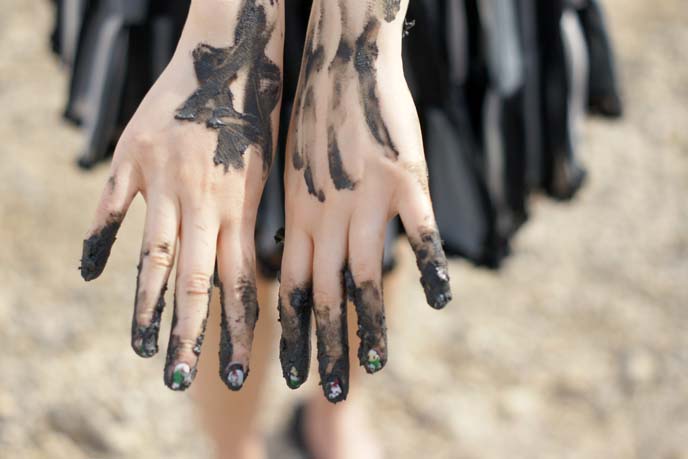
The Ein Gedi public beach also has change rooms, and a sulphur-water pool.
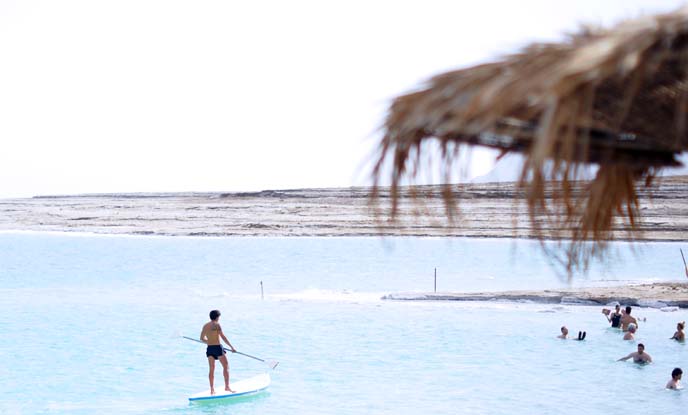
I saw some people doing standing-board paddling. Make sure you don’t put your head under water or try to swim, unless you want your eyes to burn!
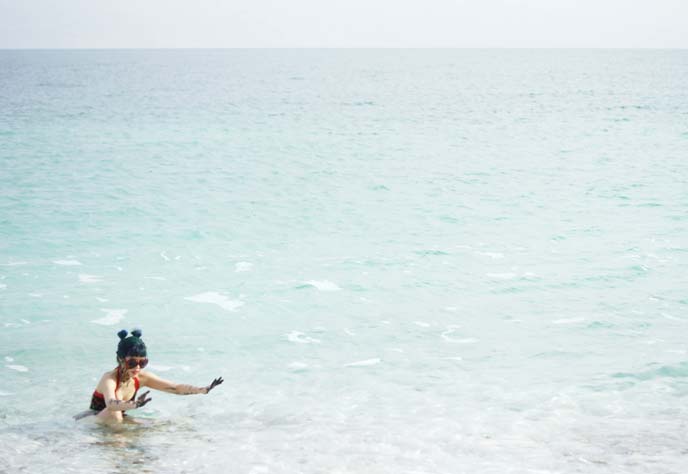
Slowly sit back, and you’ll float. Such a strange feeling. Watch out for the sharp salt formations on the floor, though… they cut my butt!
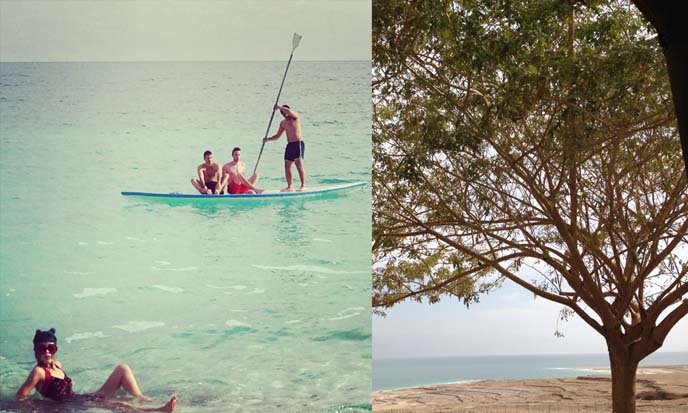
What a blessing, to be able to experience the Dead Sea. Thank you to Israel Tourism for the experience.
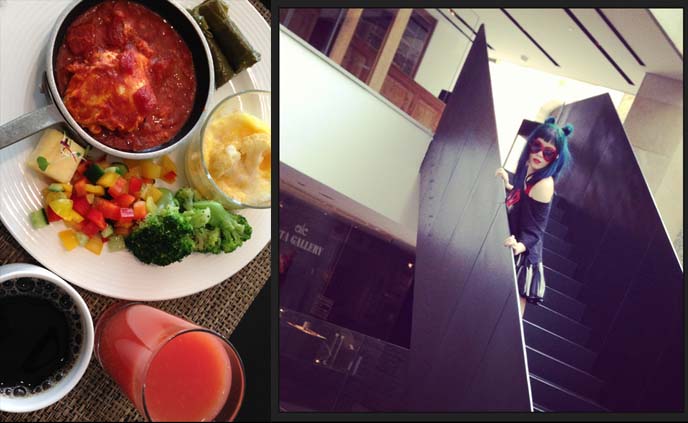
I leave you with my protein-and-veg packed breakfast at the Mamilla Hotel (including shakshuka, eggs poached with tomatoes). What is your happy place?
SHARE & COMMENT
At the Temple of Artemis in Jerash, Jordan. Exploring Greco-Roman ruins with Ya’lla Tours.

It’s interesting to see how this blog has evolved over the years. These days, it’s travel-culture that really makes me tick. On this path, I feel I can make the most difference — especially by shining a positive light on subcultures, and encouraging people to explore the world with an open mind.
For these reasons, I can’t wait to share my experience in the ancient Greco-Roman city of Jerash, in the Hashemite Kingdom of Jordan. Our expert hosts Ya’lla Tours — who also guided us through Petra — took us back in time, to a lost civilization.

Jordan is home to dozens of archaeological digs. The UNESCO heritage site Petra is the most famous, but Jerash is noted as one of the best preserved ruins in the Middle East.
Jerash (or Gerasa) is 30 miles north of the capital city, Amman. At the entrance, I saw display tables of scarves, stuffed camel toys and other souvenirs.
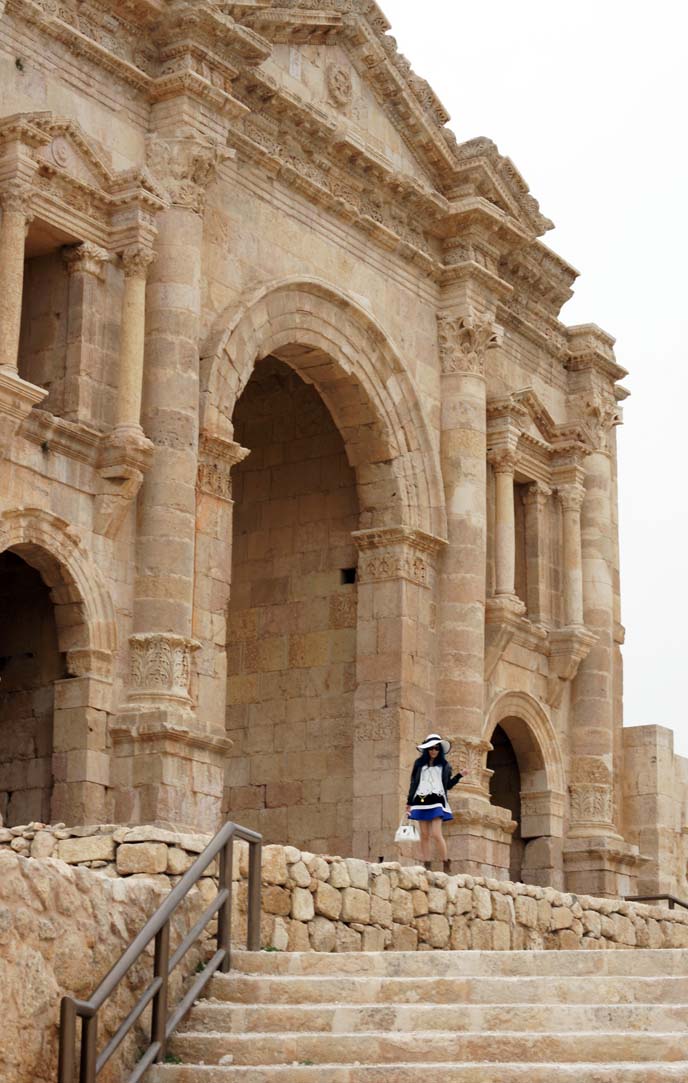
When you walk up the south stairway, you’ll encounter the Arch of Hadrian — built to honor the Roman Emperor when he visited around 130 AD.

It felt like a dream, wandering through the three stone arches.
Outfit details: Cute bunny top from the Miffy store in Hong Kong, a Baby the Stars Shine Bright purse from Shinjuku Marui Tokyo, and a blue skater skirt from World Wide Love Tokyo.
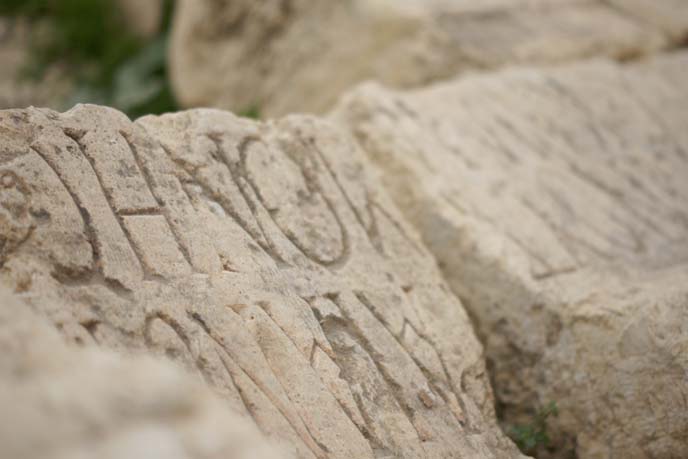
Our Ya’lla Tours guide told us about Jerash’s prosperous past, and how it was the hometown of the mathematician Nicomachus. He pointed out Greek words carved into fallen stones.
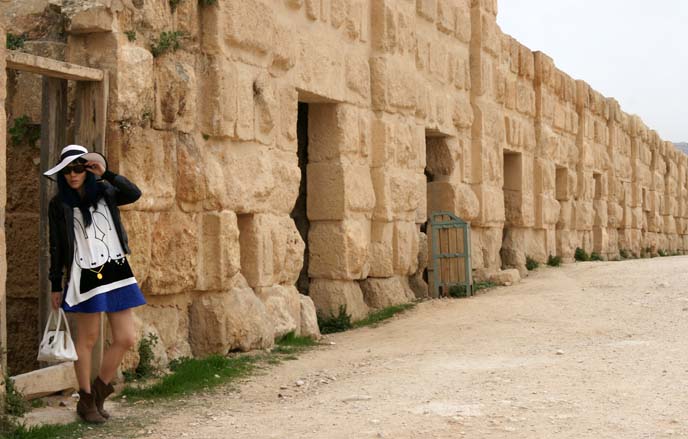
Jordan is a progressive country so there aren’t any dress code restrictions. It is not a problem to have bare legs here, although you will want to wear sturdy shoes or boots for the unpaved ancient paths.

Amazing to see the Roman’s advanced architecture and engineering, which has withstood major earthquakes.
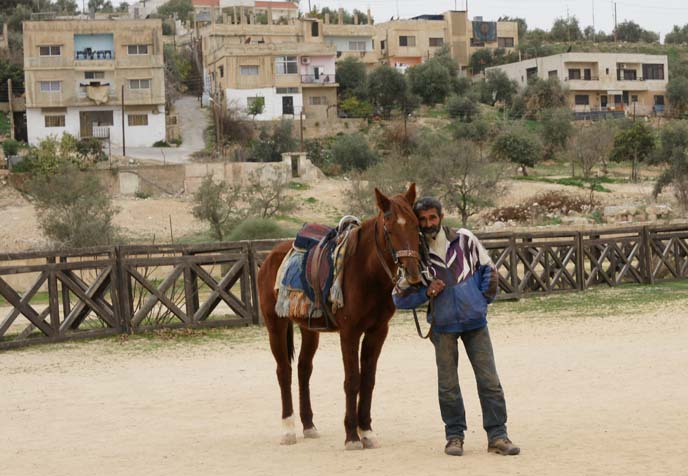
Unlike Petra, Jerash didn’t have too many tourists wandering about. Only a few vendors offered us a snack or a horse ride.
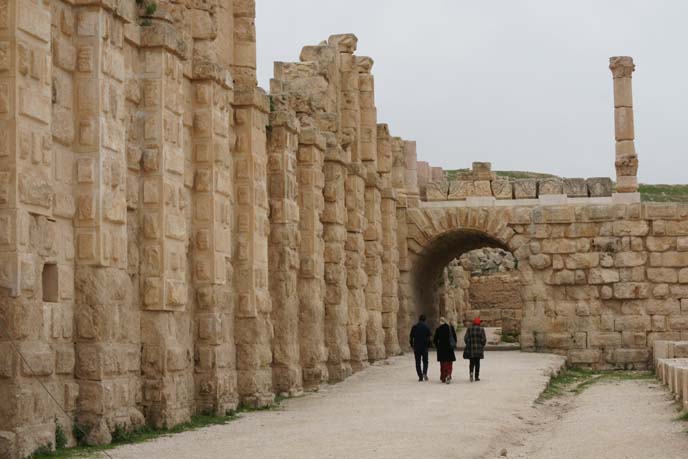
This added to the feeling that I was re-discovering an ancient world.
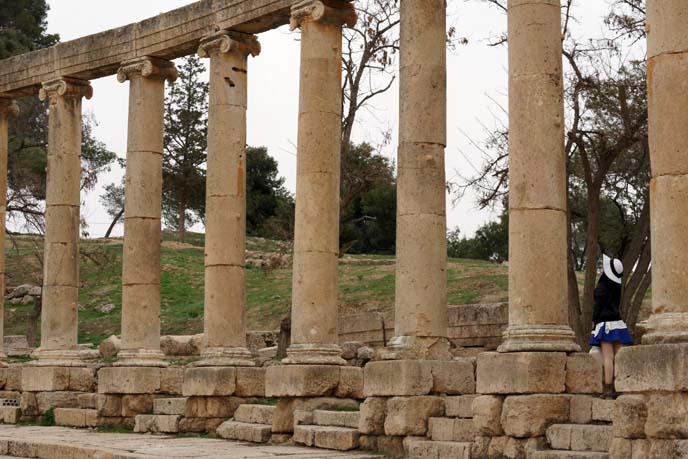
The path opened up to the Oval Plaza, surrounded by a colonnade. In the middle, I saw two altars and a fountain.
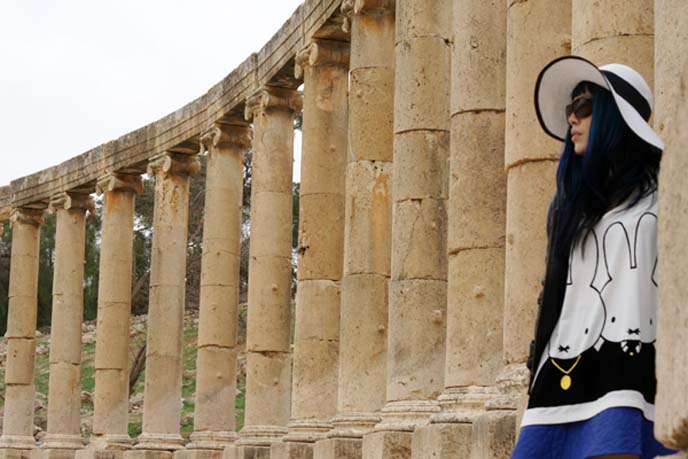
No wonder Jerash is nicknamed “the city of 1000 columns.” If you’re an art history buff like me, you’ll recognize that these are in the Ionic style. (Other parts of the city have Corinthian columns.)
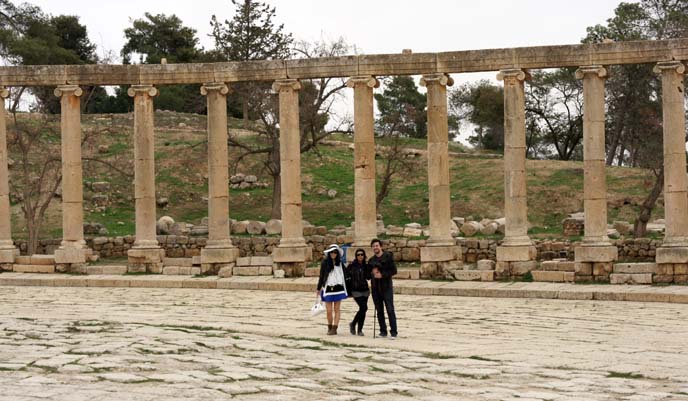
My filmmakers were shooting video the entire time. This photo is by our Ya’lla guide; the rest are by Melissa Rundle and me.
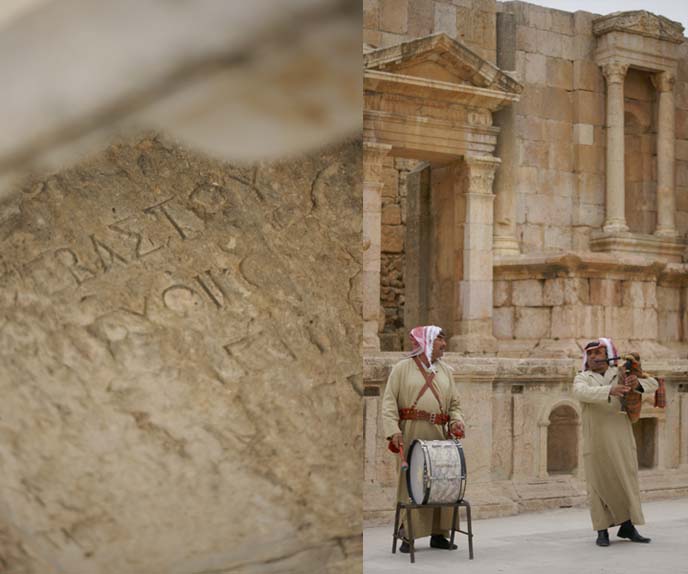
Wait… why are there bagpipes in Jordan? Our guide told us that a bagpipe-type instrument originated in the Middle East, possibly thousands of years before it appeared in Scotland. You learn something every day.
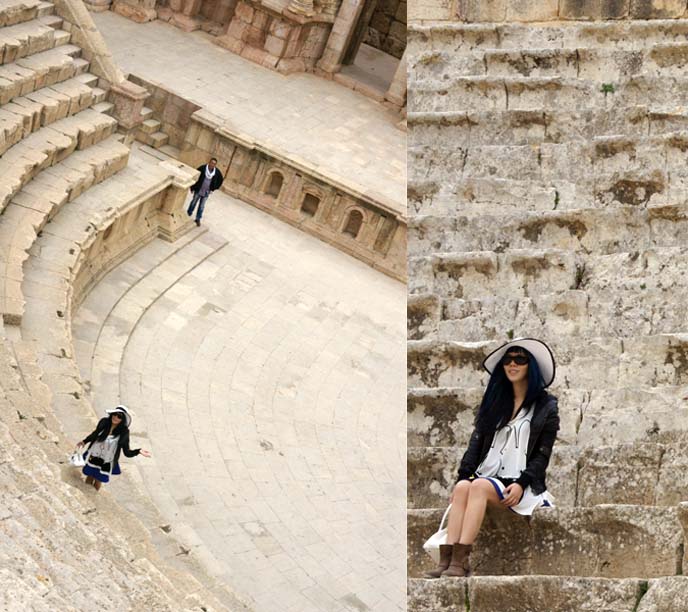
We perched in the South Theater, which held as many as 3000 spectators, and watched the performers. Funny enough, there was a seat reservation system back in ancient times. You could still see stones marked with Greek letters like alpha, delta, epsilon!
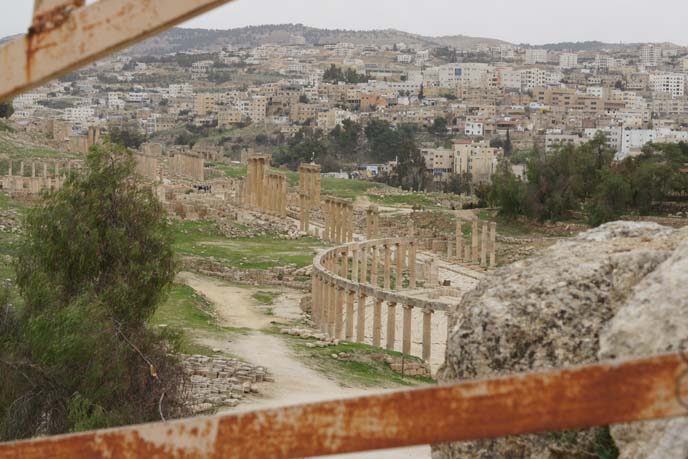
We climbed up to the top, and got this brilliant view of the sprawling ruins. However, descending proved to be a bit of a challenge… I ended up looking like a hunched grandma, as I crawled down the rows. (No, I’m not posting those photos!)
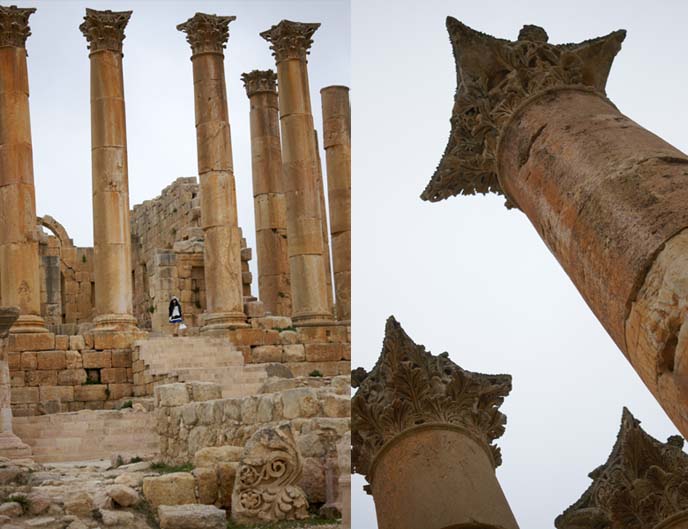
Perhaps my favorite monument was the Temple of Artemis. The daughter of Zeus was the protector goddess of Jerash, and they honored her with a grand processional entrance to this place of worship. Look up, and you’ll see acanthus leaf carvings on the Corinthian columns.
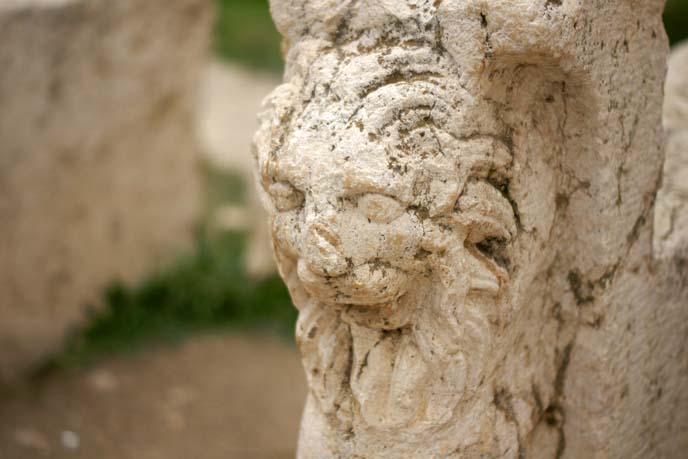
I spotted a lion in the Macellum or marketplace.
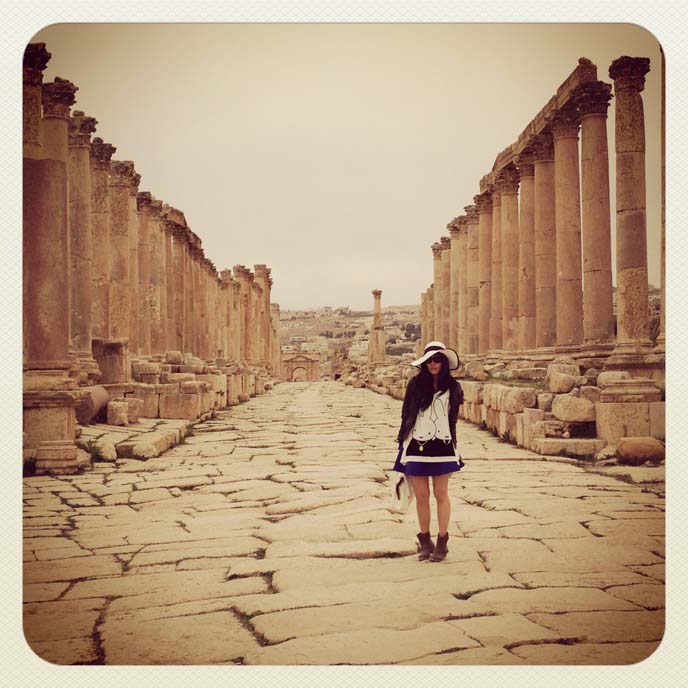
Let’s wrap up our journey with some Insta-snaps (follow my my Instagram for more). I’m standing on the “cardo” or long colonnaded street, which was the main route in Jerash. You can still see the marks of chariot wheels on the stones.
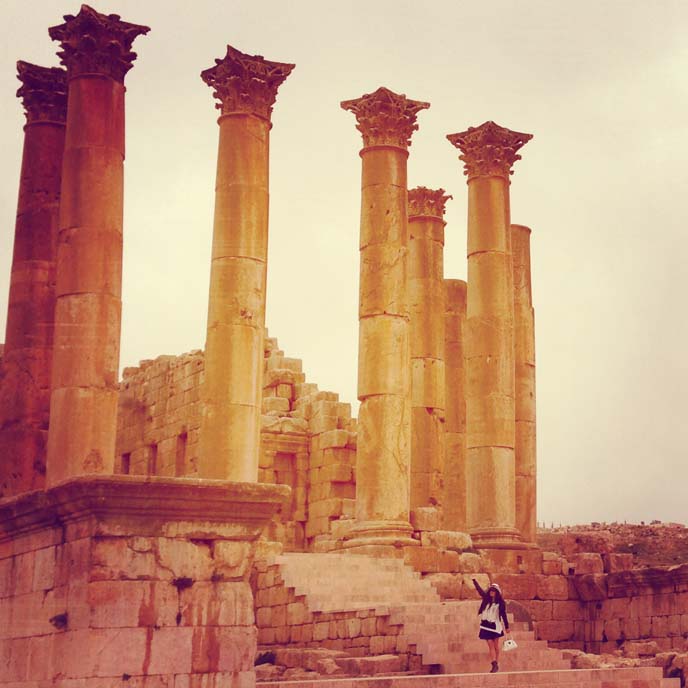
Filmmaker Melissa prayed for a hot beverage as we ascended the Artemis Temple. The goddess granted her wish: at the top, a young Jordanian man with a surprising British accent was selling cups of coffee and mint tea!
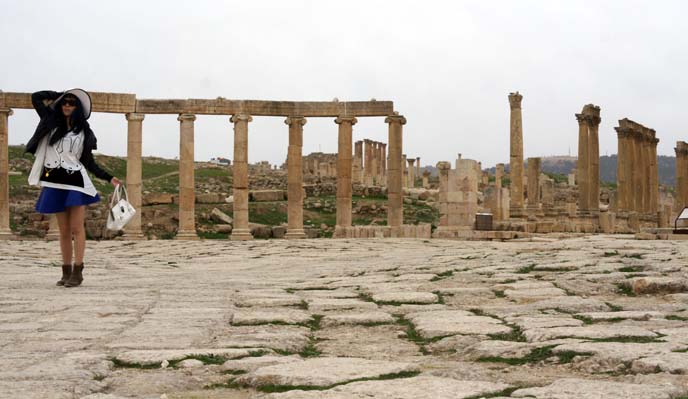
I leave you with the Hippodrome, or giant arena for chariot races and other sporting events.
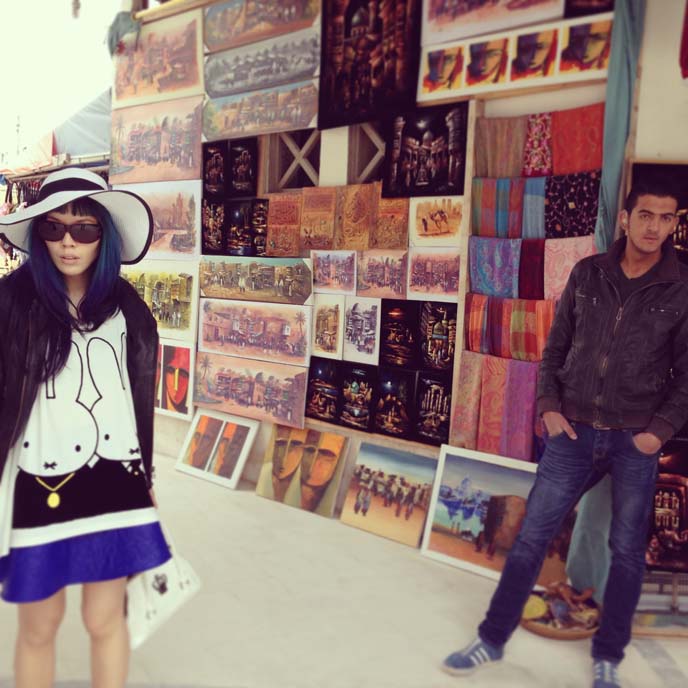
We learned so much about Jerash thanks to Ya’lla Tours. With a driver and expert guide, our trip to Jordan was stress-free. Ya’lla does custom, small group tours in many countries including Israel; I hope you’ll keep them in mind for your travels.
Have you ever visited an archaeological site? What was your experience like? And do you like my Miffy outfit?
 LA CARMINA
LA CARMINA






